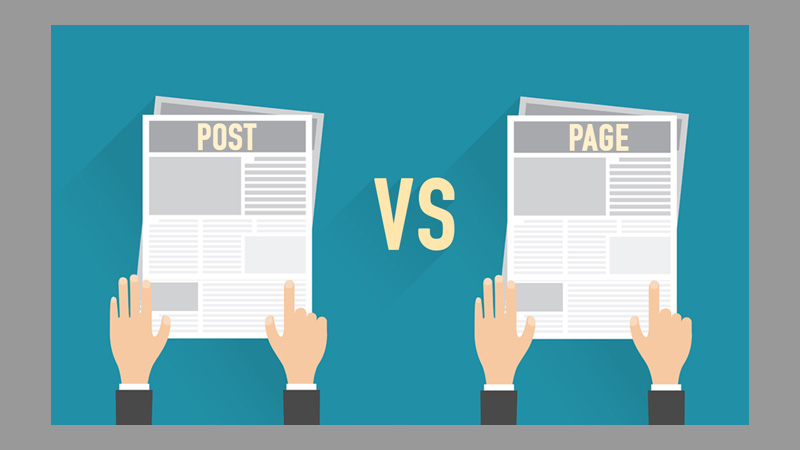
Question: So, what’s the difference between posts and pages in WordPress?
This is a common question for WordPress beginners. I had the same question when I first began “kickin’ the tires” with WordPress. From the end user’s perspective a webpage is a webpage is a webpage. Why would I need to have two options to create a webpage?
Another common question that gets asked is, “What should a create a page for and what should I create a post for?”
The video below will help to answer these questions and give you a good idea of the difference between the two content types.
WordPress Posts vs Pages – Key Differences
WordPress Posts (or, blog posts) typically have a time component to them. They are like news articles and a site will generally create new posts regularly.
- Posts are typically written about news (current events) or information about a particular subject or topic.
- Within WordPress, posts are published in reverse chronological order – the most recent post is listed first.
- All of your posts are apart of a blog roll, which simply is a list of all of the blog posts you have created.
- Posts can be tagged and put into different categories.
- Posts are what gets added to the RSS feed of your WordPress blog. Have you ever subscribed to the RSS feed of a website? If so, the content that you get from that feed is generated from that site’s blog.
WordPress Pages, like posts, are also pieces of content that can be published as a webpage. This is where they are different from posts:
- Pages are static content. This means the content of a page generally does not change much. Examples of pages on a site would be the ‘contact us’ page or ‘about us’ page. If you have ever visited a business site that lists their services, these ‘service’ pages are typically just that; a page.
- Pages are not apart of your blog. You will not find any pages in the actual blog roll.
- Pages are not included in a site’s RSS feed.
- Pages can have a hierarchy. This means you can have a main page (or, “parent” page) and list sub-pages (or “child” page) underneath. Think about a business site that provides many services. They may have a main services page and then list several of their services underneath. You’ll typically see this type of structure in the main menu of a website.
